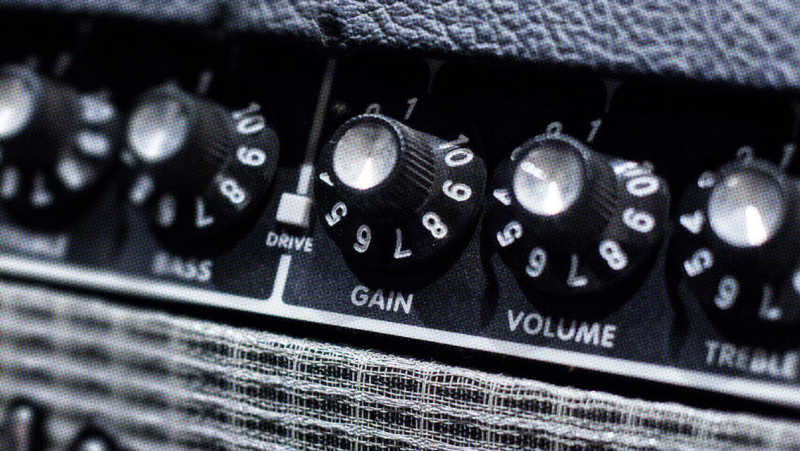9136582525268,
9136563978580,
9136536453460,
9136509682004,
9134219329876,
9134209794388,
9124096606548,
9121234846036,
9121045610836,
9116170223956,
9115301937492,
9106507858260,
9106398314836,
9105229152596,
9100891423060,
9098205135188,
9097806283092,
9097212625236,
9088279839060,
9086916329812,
9082314621268,
9082255212884,
9063423574356,
9052581495124,
9048030380372,
9036159123796,
9033794421076,
9032274542932,
9032036155732,
9029747442004,
9028827677012,
9028778525012,
9024850329940,
9014774694228,
9003741577556,
9003736236372,
8993992311124,
8993927922004,
8993572716884,
8993505182036,
8985743098196,
8984679514452,
8979103842644,
8978745262420,
8974268760404,
8959106777428,
8956210413908,
8952478695764,
8952464900436,
8940574409044,
8518946029908,
8548630790484,
8548510105940,
8550347768148,
8548937072980,
8548500963668,
8548924391764,
8548521869652,
8548929175892,
8548478779732,
8550357107028,
8548925342036,
8686768750932,
8548920951124,
8548610998612,
8550327976276,
8644486627668,
8550353535316,
8686739030356,
8548515217748,
8550318080340,
8550362022228,
8550366445908,
8550358188372,
8550367396180,
8550374900052,
8550364250452,
8643339125076,
8645352423764,
8550368870740,
8550338691412,
8550337184084,
8550333088084,
8548942512468,
8550323814740,
8548938056020,
8548933370196,
8550342459732,
8817788027220,
8805306007892,
8846058357076,
8862359388500,
8798014701908,
9036159123796,
8827583070548,
9028778525012,
8934234259796,
8796586770772,
8802072199508,
8798949179732,
8709088772436,
9048030380372,
8778269884756,
8766187307348,
8903239369044,
9124096606548,
9052581495124,
8932034052436,
8774582370644,
8938869621076,
8822157148500,
8819037176148,
8774507331924,
8709088772436,
8576121733460,
8578142765396,
8576365756756,
8572844114260,
8572833268052,
8572817572180,
8553195864404,
8553185018196,
8590024606036,
8518561726804,
8518589907284,
8518581420372,
8575681331540,
8558208909652,
8581319229780,
8575629820244,
8518594789716,
8513988231508,
8558232502612,
8583626162516,
8583722959188,
8581498011988,
8580961042772,
8583544865108,
8580908974420,
8558229455188,
8572893888852,
8577564639572,
8577655308628,
8581395710292,
8577577582932,
8577637679444,
8583606567252,
8578448916820,
8572933210452,
8518611599700,
8558237679956,
8583630225748,
8581517050196,
8576453280084,
8576383779156,
8574982193492,
8558193377620,
8576460226900,
8557711917396,
8513989869908,
8789017526612,
8583660667220,
8518605701460,
8583709032788,
8578255094100,
8648773599572,
8578288648532,
8562681545044,
8583643562324,
8583565082964,
8583695991124,
8558235386196,
8769088782676,
8548937072980,
8686768750932,
8686739030356,
8709088772436,
8956210413908,
8840389656916,
8709088772436,
8581395710292,
8915757105492,
8581464392020,
8709088772436,
8590084243796,
8589421674836,
8589414170964,
8586547724628,
8709088772436,
8577577582932,
9082255212884,
8586481860948,
8709088772436,
8557667778900,
8680507867476,
8586730242388,
8709088772436,
8581150933332,
8590471201108,
8590407663956,
8709088772436,
8518780092756,
8554264232276,
8518784254292,
8709088772436,
8569317589332,
8569355960660,
8518788153684,
8709088772436,
8553891397972,
9033794421076,
8709088772436,
8628305985876,
8648773599572,
8903158268244,
8518929350996,
9028827677012,
8716367888724,
8611287826772,
8518933643604,
8872973042004,
8956210413908,
8614093226324,
8840389656916,
8553172861268,
8752821633364,
8518936330580,
8664374116692,
8795656946004,
8575327928660,
8553195864404,
8553185018196,
8518584992084,
8518581420372,
8581558501716,
8581464392020,
8581439717716,
8581450170708,
8694154199380,
8581517050196,
8583709032788,
8583695991124,
8769088782676,
8749298188628,
8583703036244,
8581395710292,
8581480120660,
8583556792660,
8583634354516,
8974268760404,
8583714079060,
8518587154772,
8581498011988,
8583722959188,
8581353996628,
8709631312212,
8583595131220,
8581525700948,
8583606567252,
8583565082964,
8581545132372,
8584196227412,
8583626162516,
8583630225748,
8580986667348,
8580995809620,
8915757105492,
8583728857428,
8583647265108,
8584157102420,
8583688847700,
8660055884116,
8583664402772,
8583660667220,
8583651230036,
8583643562324,
8583668662612,
8580796154196,
8584210645332,
8583615185236,
8583602798932,
8583678361940,
8768588710228,
8768592838996,
8768583598420,
8916421280084,
9136509682004,
9136582525268,
9136536453460,
9136563978580,
8590024606036,
8590084243796,
8590090731860,
8590097023316,
8586547724628,
8589414170964,
8589398671700,
8589407125844,
8589385597268,
8589393625428,
8589345587540,
8589435502932,
8589421674836,
8590099054932,
8590069530964,
8814185185620,
8814204092756,
8837955551572,
8993992311124,
8842515775828,
8959106777428,
9106507858260,
9063423574356,
9082314621268,
9032274542932,
8842415014228,
9014774694228,
8867534405972,
8912372695380,
9134219329876,
8936808874324,
8993572716884,
8993927922004,
8820413628756,
8831408210260,
8814878032212,
8879797371220,
8814860403028,
8814865252692,
8814884454740,
8814898839892,
8709088772436,
8518561726804,
8513988231508,
8576121733460,
8576365756756,
8576383779156,
8576425689428,
8576385745236,
8577637679444,
9106398314836,
8577734377812,
8578259616084,
9032036155732,
8936667251028,
8612750754132,
8578098856276,
8577885536596,
8577617559892,
8577646494036,
8577571488084,
8576451150164,
8513989869908,
8578142765396,
8993505182036,
8820403274068,
8578758410580,
8576411042132,
8578772369748,
8578765586772,
8775664599380,
8577628635476,
8578544337236,
9082255212884,
8578288648532,
8576453280084,
8576397869396,
8699674984788,
8576460226900,
8577631060308,
8577595834708,
8578520613204,
8577955889492,
8578107539796,
8586481860948,
8577655308628,
8577920041300,
8576403734868,
8578448916820,
8577642692948,
8577583743316,
8649017491796,
8583367164244,
8588599198036,
8589162283348,
8583723155796,
8706806153556,
8583631339860,
8583637958996,
8518589907284,
8558208909652,
8518594789716,
8572844114260,
8562654708052,
8562681545044,
8575737200980,
8557667778900,
8572933210452,
8558193377620,
8680507867476,
8825348292948,
8779379048788,
8562731614548,
8557701005652,
8557711917396,
8761086476628,
8573101113684,
8518605701460,
8572777169236,
8572893888852,
8558229455188,
8558237679956,
8575715115348,
8575784190292,
8656125198676,
8910066123092,
8572790505812,
8573328425300,
8572952772948,
8560548905300,
8558235386196,
8558172602708,
8572747841876,
8586642719060,
8681989341524,
8575805161812,
8575708397908,
8562661228884,
8575690604884,
8586739712340,
8562716508500,
8573338255700,
8705601831252,
8562697503060,
8572802990420,
8586730242388,
8562704351572,
8562692325716,
8586664968532,
8518775963988,
8518611599700,
8578090926420,
8581150933332,
8578533917012,
8578547777876,
8518778028372,
8578505179476,
8741927518548,
9086916329812,
8583544865108,
8886543483220,
8578255716692,
8661270724948,
8614792167764,
9105229152596,
8637893017940,
8749434569044,
8578594603348,
8631120560468,
8578327314772,
8578687533396,
8578181595476,
8578153152852,
8985743098196,
8699505344852,
8578139128148,
8580583326036,
8590471201108,
8578285076820,
8583569473876,
8578168652116,
8578160820564,
8578651717972,
8581214863700,
8581200511316,
8583580025172,
8581191369044,
8581157880148,
8662147334484,
8661436465492,
8581132419412,
8581128585556,
8578519499092,
8580592992596,
8580547117396,
8578680226132,
8580531814740,
8580525064532,
8580516217172,
8518780092756,
8518782583124,
8849282793812,
8554264232276,
8552412610900,
8554207740244,
8548704256340,
8554344579412,
8518784254292,
8548667883860,
8554250928468,
8552444887380,
8552386560340,
8554365911380,
8554286940500,
8554381181268,
8554230448468,
8552359592276,
8552193294676,
8548627808596,
8518788153684,
8572149760340,
8569897353556,
8572073378132,
8569920815444,
8569355960660,
8569860063572,
8569873662292,
8518789955924,
8569317589332,
8569334497620,
8575811027284,
8575786713428,
8575756108116,
8575732318548,
8575711707476,
8575697879380,
8575682281812,
8572309307732,
8572234465620,
8572209168724,
8887278174548,
8887026876756,
8833370685780,
8833421148500,
8811836080468,
8709088772436,
8930630500692,
9121045610836,
9100891423060,
9098205135188,
8553885401428,
8940250726740,
9029747442004,
8940574409044,
9097212625236,
9033794421076,
8553889300820,
8553891397972,
8553903194452,
8553895952724,
8518941376852,
8637468049748,
8614137037140,
8697772966228,
8553888383316,
8764224471380,
8764750561620,
8709088772436,
8793495437652,
8789017526612,
9088279839060,
8952464900436,
8794367328596,
9003741577556,
8875134058836,
9115301937492,
9003736236372,
8952478695764,
8828634333524,
8812651905364,
8787832668500,
8831041601876,
8831076893012,
8709088772436,

